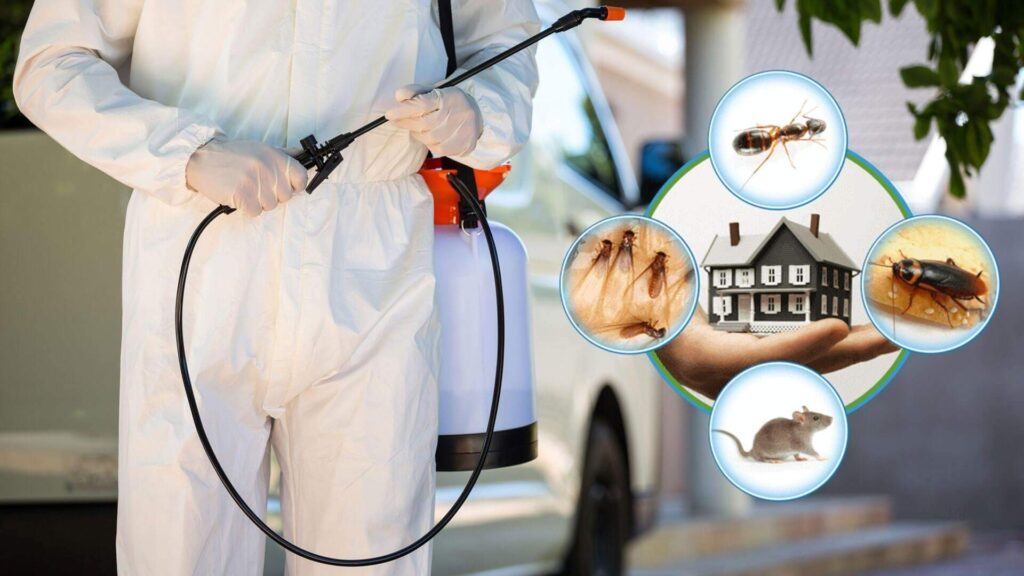Maintaining a property’s value is a top priority for property managers and landlords. There are numerous factors that contribute to the overall worth of a property, and one that often goes unnoticed but plays a significant role is pest maintenance. Regular pest maintenance isn’t just about ensuring a comfortable living environment; it also has a substantial impact on the property’s value. In this article, we will delve into the reasons why residential pest control is crucial for property value and how property managers and landlords can take proactive steps to protect their investments.
The Relationship Between Pest Issues and Property Value
Pest problems can cause havoc for property owners, affecting the integrity of the structure, the safety of occupants, and ultimately, the property’s value. Termite infestations, rodent invasions, and other pest issues can lead to structural damage, weakening the foundation, walls, and even the roof. Such damage not only requires expensive repairs but also diminishes the property’s aesthetic appeal, making it less attractive to potential buyers or tenants.
Furthermore, pests pose health risks to occupants. Insects like cockroaches and rodents are carriers of diseases and allergens that can compromise indoor air quality. These health concerns can deter tenants and buyers, driving down demand and consequently, the property’s value. In an age where health and wellness are at the forefront of people’s minds, properties with a history of pest issues can find themselves at a distinct disadvantage in the real estate market.
The Role of Regular Pest Maintenance
Regular pest maintenance involves scheduled inspections and preventative measures to ensure that the property remains pest-free. It’s a proactive approach that addresses potential issues before they escalate into full-blown infestations. Property managers and landlords should consider the following benefits of implementing a consistent pest maintenance plan:
1. Prevention of Property Damage
As mentioned earlier, pests can cause significant damage to a property’s structure. Termites, for instance, feed on wood and cellulose-based materials, weakening the building’s foundation over time. By identifying and eradicating these pests early on, property owners can avoid costly repairs and preserve the property’s overall structural integrity.
2. Enhanced Aesthetic Appeal
A well-maintained property with a strong focus on pest management exudes an air of cleanliness and professionalism. Potential tenants or buyers are more likely to be attracted to a property that is free from visible pest issues, ensuring the property’s curb appeal remains intact.
3. Positive Reputation
Word spreads quickly in the real estate market. Properties that gain a reputation for pest problems can struggle to attract quality tenants or buyers. Conversely, a property with a history of proper pest maintenance earns a positive reputation, fostering trust among prospective occupants and investors.
4. Higher Tenant Retention and Attraction
For property managers, tenant retention is key to a stable income stream. Tenants are more likely to renew their leases if they feel safe and comfortable in their living environment. Regular pest maintenance contributes to a pest-free property, reducing the likelihood of tenant complaints and creating a positive living experience that encourages lease renewals.
5. Competitive Edge in the Market
In a competitive real estate market, every advantage counts. Properties that prioritize regular pest maintenance gain a competitive edge over those that neglect this aspect. The ability to showcase a pest-free environment can sway potential tenants or buyers towards choosing your property over others.

Implementing an Effective Pest Maintenance Strategy
Property managers and landlords can take several proactive steps to integrate effective pest maintenance into their property management strategy:
1. Regular Inspections:
Schedule routine pest inspections by professional exterminators. These experts can identify signs of infestations before they become unmanageable.
2. Sealing Entry Points:
Ensure that the property is well-sealed to prevent pests from entering. Common entry points include gaps around windows, doors, and utility penetrations.
3. Proper Waste Management:
Implement a waste management plan that includes secure trash storage and regular removal. Garbage attracts pests, and a proper waste disposal system can mitigate this risk.
4. Landscaping Maintenance:
Trim vegetation and trees away from the property. Overhanging branches can provide pests with easy access to the building.
5. Tenant Education:
Educate tenants about their role in pest prevention, such as keeping their living spaces clean, reporting any signs of pests promptly, and storing food properly.
6. Timely Repairs and Maintenance: A Preventative Approach
Incorporating timely repairs and maintenance practices goes hand in hand with effective pest management. Leaky pipes, cracks in walls, and damaged roofs can create ideal conditions for pests to thrive. By promptly addressing these issues, property managers and landlords eliminate potential entry points and sources of water that pests need to survive. This preventative approach not only curtails the risk of infestations but also demonstrates a commitment to maintaining the property’s value over the long term.
7. Documentation and Transparency: Building Trust and Value
Maintaining detailed records of pest maintenance activities not only helps property managers track the effectiveness of their efforts but also enhances transparency with tenants and potential buyers. Providing documentation of regular pest inspections and treatments builds trust and confidence among occupants, showcasing a proactive approach to property management. Additionally, during property transactions, having a documented history of pest maintenance can add tangible value by demonstrating the property’s well-maintained condition, which can potentially lead to more favorable negotiations and a smoother sales process.
Conclusion
Regular pest maintenance is a vital component of property management that directly impacts the value of real estate investments. Property managers and landlords who prioritize pest management reap numerous benefits, including preserved property value, tenant satisfaction, and a competitive edge in the market. By integrating pest maintenance into their overall property management strategy, they ensure that their investments remain strong, attractive, and resilient in the face of the ever-evolving real estate market.






